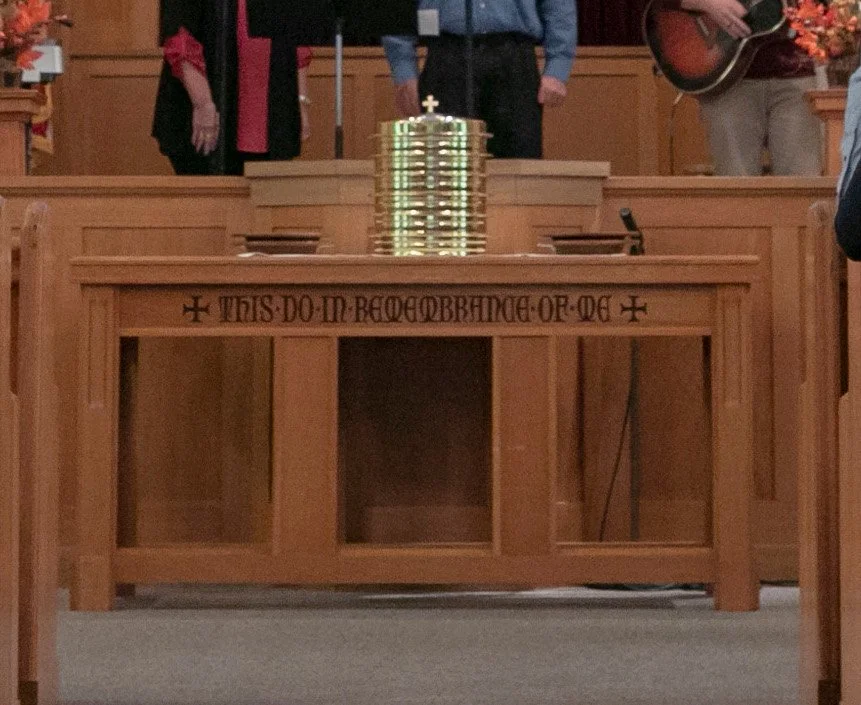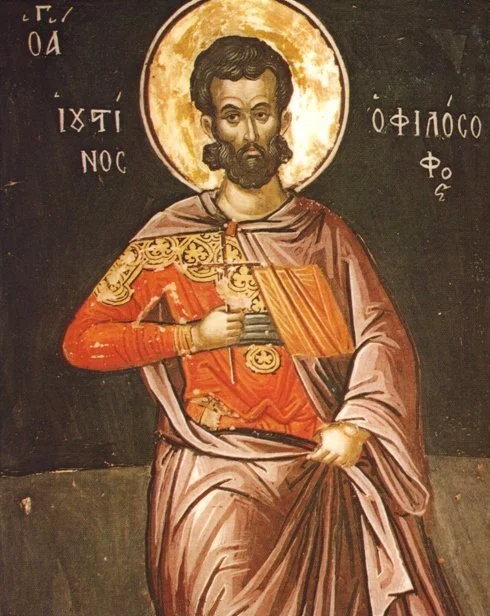Who Should Take Communion?
Every Sunday at Madison Church, communion trays are passed with breadlets and cups with grape juice representing the blood and body of Jesus. We do this in remembrance of Jesus as he commanded in Luke 22:19.
If you’ve joined us for worship before, you may have noticed that not everyone in attendance takes communion when the trays are passed. This could be for one of several reasons:
Perhaps someone is visiting Madison Church from a Church that asks its members to only partake of communion at their home Church (a Roman Catholic Church or Missouri Synod Lutheran Church would have this policy),
Perhaps someone is unsure about their faith in Jesus, or possibly certain that they do not place their faith in him,
But most of the people who pass the trays without partaking at Madison Church are people (usually children) who have not yet made the decision to pledge their faith at Baptism.
We practice open communion at Madison Church, which means we offer the elements to anyone who wishes to partake and invite all who have Jesus Christ as their Lord to do so. It would require some severe and extreme circumstance for us to challenge someone’s participation in communion at our Church. I have served here for 8 years and never participated in anything like that.
Biblical Data
Still, you or a visitor to Madison Church may wonder if they or their children should or should not partake of communion as the trays are being passed, so let’s look at what scripture says about this sacrament.
Jesus institutes communion (also called the “Lord’s Supper” and the “Eucharist”) in the upper room on the night he was betrayed in Matthew 26, Mark 14, and Luke 22. There, he shares the elements with his disciples as they are observing a passover meal.
Jesus appears to me to be speaking about communion in John 6:53-59, where he communicates its importance, even essentiality.
Acts 2:46 says that the earliest Church devoted themselves to “the breaking of bread,” which I believe means the practice of communion.
We see the church gathering to “break bread” (i.e., partake of communion) in Acts 20:7,11.
The rest of the instruction in God’s word about communion is found in 1st Corinthians 10-11. The Apostle Paul is writing to correct some errors in the way that this Church was practicing communion. Briefly, they were celebrating communion as a full meal (as was probably the common practice of the early Church), and in a way that the poor and unimportant were being overlooked, marginalized, and even going hungry. This was creating divisions in the fellowship of the Church. They are instructed to “examine themselves before they eat of the bread and drink from the cup. For those who eat and drink without discerning (honoring) the body of Christ, eat and drink judgment on themselves.” Finally, they are told to all take communion together, and to resolve their hunger at home beforehand so that they do not sin when eating together.
Suggested Guidelines
From this data, I would suggest the following guidelines for communion:
Only believers should partake of communion.
All who partake should be capable of and willing to examine themselves to discern whether they are discerning (honoring) the body of Christ. Because very young children are probably not capable of doing this, I would recommend against their participation in the elements of communion at Church. I would leave the task of discerning when a believing child is capable of doing this up to the child’s parents.
If your reading of scripture comes to different conclusions on this issue than the ones I’ve arrived at, I would LOVE to hear your thoughts and get to have a dialogue with you about them.
Why My Teen / Pre-Teen Children do not take communion
I have a teen and a pre-teen in my house who do not take communion when the trays are passed. They are probably old enough to go through a mental process of discerning/honoring the body of Christ at this time. However, we have instructed them not to partake of communion until they have chosen to confess their faith at Baptism. My rationale for this comes from some data that is extra-Biblical and thus a subjective matter. In the earliest documents of the Church, it appears that baptism was the initiating rite by which one gained access to the sacrament of communion. Here are two examples of such literature and one summary of the teaching of the earliest Church on the matter.
The Didache 9.5 ~95 AD
“Only let those who have been baptized in the name of the lord eat and drink at your Eucharists. And remember what the Lord has said about this: do not give to dogs what is holy.”
Justin Martyr, First Apology 65-6, ~150 AD
“And this food is called among us Εὐχαριστία [the Eucharist] (communion), of which no one is allowed to partake but the man who believes that the things which we teach are true, and who has been washed with the washing that is for the remission of sins, and unto regeneration, (this is precisely how he described the sacrament of baptism four chapters earlier) and who is so living as Christ has enjoined. For not as common bread and common drink do we receive these.”
Michael J. Kruger, Christianity at the Crossroads: How the Second Century Shaped the Future of the Church, (IVP Academic, 2018) P.104-105
Because the Lord's Supper concerned the sacrificial death of Jesus and the unity of the Church, it was an aspect of worship that was only available to those who had already been properly initiated into the life of the Church-i.e., it was only for those who had been baptized. Consequently, the act of baptism was both part of early Christian worship and, at the same time, something that was done before one was admitted to Christian worship (at least if it included the Lord's Supper). Baptism signified the washing away of sins and the new life found in Christ. The second-century Epistle of Barnabas describes baptism: 'We descend into the water full of sins and filth, but come up out of it bearing the fruit of reverential fear in our heart and having the hope of Jesus in our spirits.’
There is no extant Christian literature from this early in Church history that would contravene the above. Thus, it would be my recommendation, but not requirement, that only those who have confessed their faith at baptism partake of communion at Church.
Conclusion
Communion is an incredible gift from God. We have been given the task of remembering the body and blood of our savior in a physical, participatory way that unites us with the brothers and sisters in Christ with which we partake. We typically place communion right in the middle of our service, after we have had time to worship and pray to God and we spend time in devotion and meditation intentionally before the trays are passed. If Jesus Christ is your lord we want to take communion with you and be united to you in one body (1st Corinthians 10:17). If you have any questions about communion or anything else, I (Joel) would love to talk with you about them whenever you’re ready.


